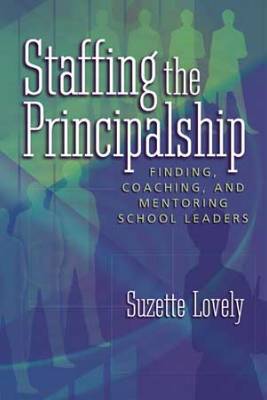
Staffing the Principalship: Finding, Coaching, and Mentoring School Leaders
$31.99
$25.36 member price join now
About
“Help Wanted” signs are springing up outside our schools. The shortage of school administrators isn′t coming, it′s here. To thwart the shortage and keep schools on the cutting edge, we must exercise diligence in cultivating, training, and inspiring a new generation of school leaders—especially for the principalship.
Table of contents
Finding High-Quality Candidates
Getting Prospects Ready for the Principalship
Helping Principals Continue to Grow
Keeping Good Leaders